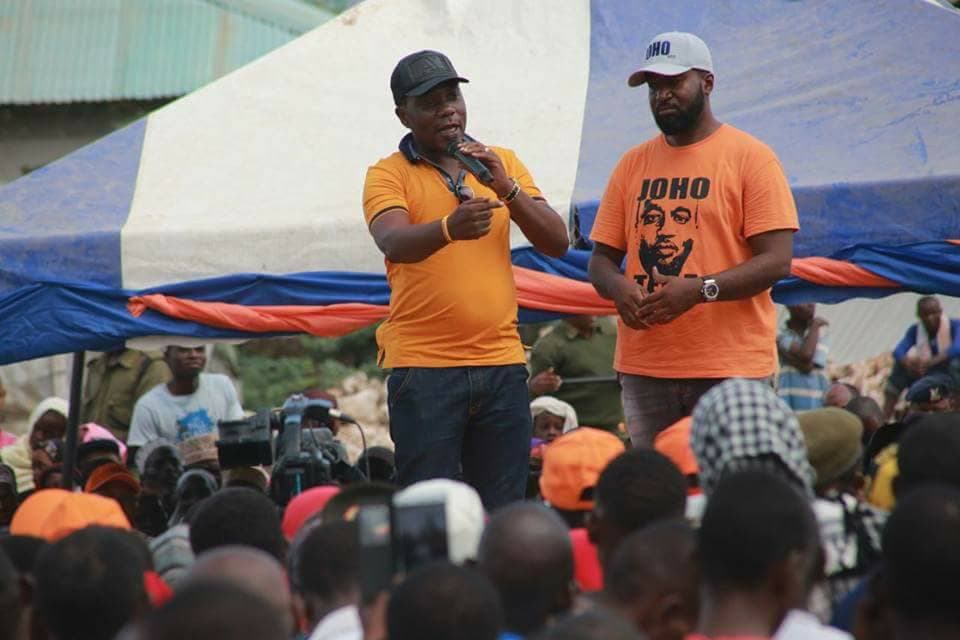We're loading the full news article for you. This includes the article content, images, author information, and related articles.
Kisauni MP Rashid Bedzimba's journey from a General Service Unit (GSU) officer guarding Raila Odinga in prison to a Member of Parliament highlights the profound impact of political mentorship and the evolving landscape of Kenyan politics.

The political career of Kisauni Member of Parliament Rashid Bedzimba stands as a unique testament to the transformative power of political inspiration and mentorship in Kenya. Bedzimba, currently serving his second term as MP, first encountered former Prime Minister Raila Odinga under vastly different circumstances: as a General Service Unit (GSU) officer assigned to guard Odinga during his detention at Naivasha Maximum Security Prison following the attempted coup of 1982.
Bedzimba revealed on Thursday, October 16, 2025, that his interactions with Odinga during this period profoundly influenced his decision to enter politics. "My journey with Mr. Odinga began over 35 years ago, when I was serving as a GSU officer in Naivasha Maximum Prison guarding and protecting him during his detention period, after the 1982 coup. He inspired me and later held my hand and mentored me. I am what I am today because of what Raila Odinga did to me," Bedzimba recalled.
Raila Odinga's detention in 1982 was a direct consequence of the political climate following the attempted coup against then-President Daniel arap Moi's government. Odinga was accused of plotting against the government and subsequently imprisoned without trial for six years. Naivasha GK Prison, where Odinga was held, was known during the 1980s as a facility for detaining politicians and civilians perceived as critical of the government. The GSU, a paramilitary wing of the Kenya Police Service, is tasked with maintaining internal security, providing VIP protection, and managing civil disturbances, among other duties.
Kenya, which gained independence in 1963, transitioned into a de facto one-party state by 1969, and officially became a de jure one-party system in 1982 with the introduction of Section 2A into the constitution. This period was marked by political repression, with many pro-democracy campaigners, including Odinga, facing detention without trial. The repeal of Section 2A in 1991 paved the way for the reintroduction of multi-party democracy in Kenya, fundamentally altering the political landscape.
Bedzimba's account highlights the personal impact of political figures on individuals, even across the divide of incarceration. He recounted seeing Odinga daily during his shifts and being moved by the freedom songs Odinga would sing. This inspiration, he stated, softened him despite his role as a government security officer. Odinga, who passed away on Wednesday, October 15, 2025, in Kerala, India, at the age of 80, is widely acknowledged for his significant role in Kenya's political reforms and for mentoring numerous politicians.
Bedzimba's political journey began in earnest after he left the GSU in 1992. He worked as a security consultant in the Middle East before returning to Kenya in 2001, ahead of the 2002 general election. He was subsequently nominated as a councilor in Mombasa and later won the Mjambere Ward seat in Kisauni on an ODM ticket. His election as Kisauni MP in 2013 marked a significant milestone in his career, a path he attributes directly to Odinga's influence.
The story of Rashid Bedzimba serves as a powerful narrative within Kenya's political history, demonstrating how personal encounters can shape individual destinies and contribute to the broader democratic journey of a nation. As Kenya reflects on the life and legacy of Raila Odinga, the impact of his leadership and mentorship on individuals like Bedzimba will continue to be a significant aspect of his enduring influence.
Keep the conversation in one place—threads here stay linked to the story and in the forums.
Sign in to start a discussion
Start a conversation about this story and keep it linked here.
Other hot threads
E-sports and Gaming Community in Kenya
Active 9 months ago
The Role of Technology in Modern Agriculture (AgriTech)
Active 9 months ago
Popular Recreational Activities Across Counties
Active 9 months ago
Investing in Youth Sports Development Programs
Active 9 months ago
Key figures and persons of interest featured in this article